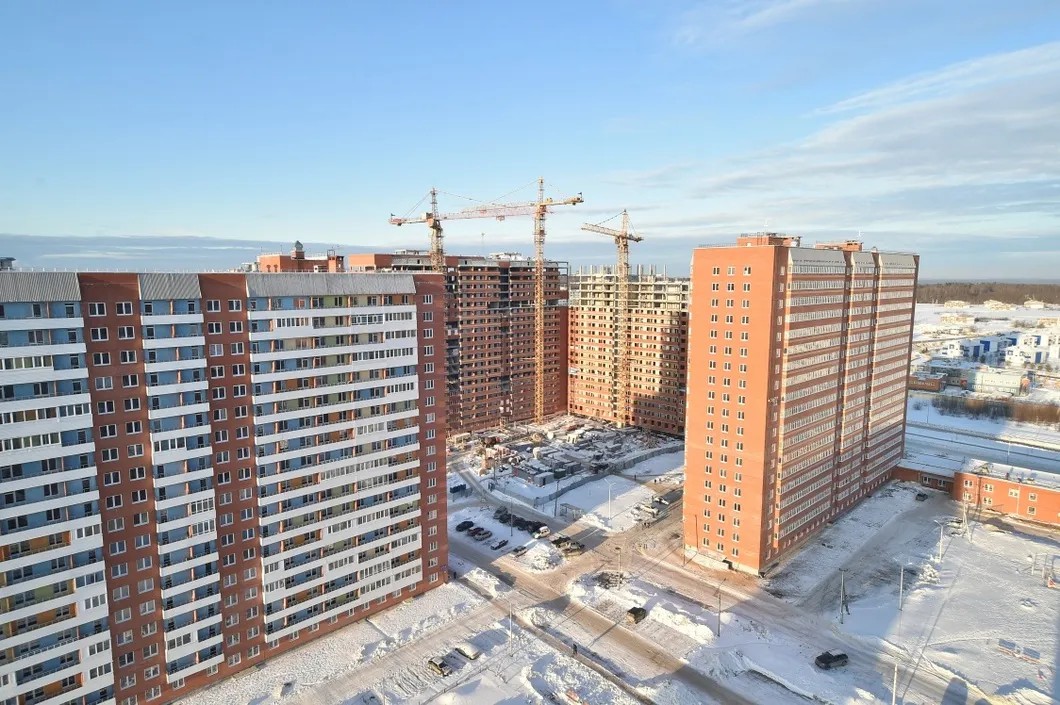
This Week’s Highlights
We’ve uncovered the use of forced labor at building sites funded by the Russian government, the Kremlin doubles-down on Soviet nostalgia as a smokescreen for the ongoing power-grab, escalating hostilities complicate Moscow’s involvement in Syria, HIV-positive migrants are facing deportation and other top stories that Russia has been reading this week.
Want to get the full story? Click the links below for full-length articles in Russian.
New feature! Russia, Explained Audio Briefing. Also available on Apple Podcasts and Google Podcasts!
Government Funded Forced Labor, Exposed
On February 20, 2019, a judge in the Perm Krai – on the eastern edge of European Russia – ordered the deportation of five North Koreans who had been living and working there illegally. Before they were deported, the undocumented migrants met with human rights activists and revealed their work as forced laborers during the construction of 31 apartment buildings not far from Perm. Funds partially allocated from federal and regional budgets apparently financed the building project.
Government-funded forced labor. A Russian-Korean man known only by his last name, Tsoi, was allegedly responsible for bringing the undocumented North Korean workers to the construction site. One of the workers told Novaya Gazeta that he and the other laborers lived on-site, in the very apartments they were building. “We even cooked for ourselves there. The workday was 15 to 16 hours. We slept on the floor, there was no bedding, only old mattresses,” he recalled. “Tsoi took our passports. They were only returned after the trials, ahead of the deportation.” Over the course of about two months, the five North Koreans worked as finishers and sometimes did hard labor like mixing cement. In the end, they were paid about $236 – as a group.
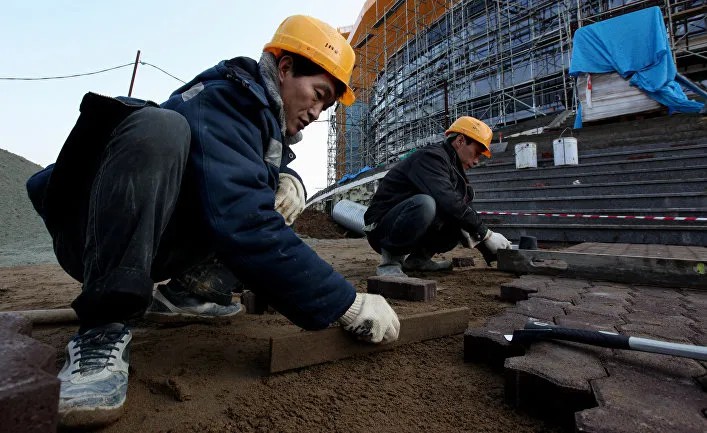
A long-running scheme.According to migrant rights lawyer Boris Ponosov, the chance of a proper investigation to determine who exactly employed the illegal North Korean workers is slim – the one-year statute of limitations for the case expires on February 20. He also suspects that this is likely a long-running scheme: dishonest employers profit off of the work of undocumented migrants – whose labor is so cheap it’s essentially forced – and then deport them from the country at the government’s expense. Meanwhile, illegal labor practices are covered up with the help of the police, the Federal Migration Service and the courts.
Read more about the case of the undocumented North Korean workers in the Perm Krai here.
Power-Grab Smokescreen, Explained
As Russia approaches the seventy-fifth anniversary of the victory in World War II, officials at all levels are showing their competitive patriotism by allocating significant amounts of money to fund the celebrations. But these events are taking on even more significance because they will provide a smokescreen for the Kremlin’s ongoing power grab through the adoption of a new Constitution.
Fast track to popular support. “The Kremlin is going through a ‘transitional state,’ they’re rushing to expand their powers [while] trying to show citizens a modest [amount of] care and attention,” explains our politics editor, Kirill Martynov. And given the current situation, the cheapest way for the Federal government to gain popular support is to carry out a hunt for unpopular, mid-level officials.
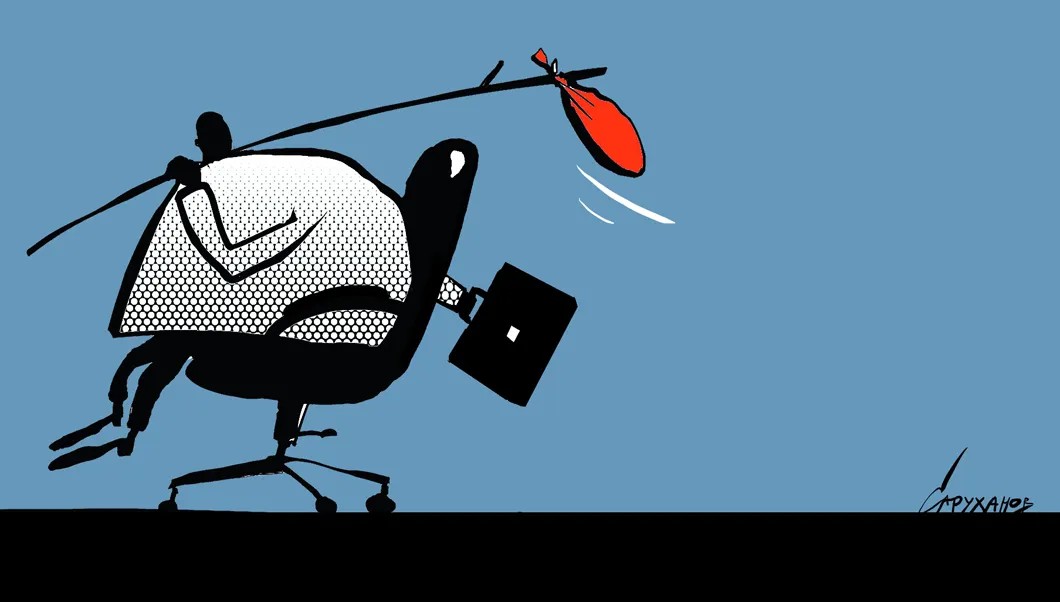
Pretend you are fighting “rude bureaucrats.”For example, just last month, the head of the Chuvashia Republic (a region west of the Volga river in the center of European Russia) lost his post after forcing a firefighter to jump for the keys to a new fire truck during an official ceremony. The way Martynov sees it, the fallout from this incident in Chuvashia speaks to the fact that in 2020, the “greatest sin” a public official can commit is rudeness. The government’s image has become so important that bad public relations have now superseded issues like corruption when it comes to reasons why mid-level Russian bureaucrats might lose their positions.
Or distract by inflating Soviet nostalgia.According to Martynov, the upcoming Victory Day celebrations could go down in history as the peak of public nostalgia for Russia’s “great Soviet past” – but the Kremlin’s push to spend money on memory politics is also forcing officials to make tough decisions. “So long as citizens continue to tighten their belts, bureaucrats will have to bite their tongues for a while,” Martynov concludes.
Read Kirill Marytnov’s take on how the transition of power is putting pressure on lower-level officials here.
Поддержите
нашу работу!
Нажимая кнопку «Стать соучастником»,
я принимаю условия и подтверждаю свое гражданство РФ
Если у вас есть вопросы, пишите [email protected] или звоните:
+7 (929) 612-03-68
Moscow’s Messy Involvement in Syria, Explained
Last week, the situation in Syria’s northwestern province of Idlib grew even more hostile as Turkey sent 12 thousand troops into the region and shut down its airspace. This came as a push back against Syria’s violation of the demilitarized zone, established through an agreement between Russia and Turkey in 2018. According to our source in southern Turkey, the Turkish side has also deployed two tank brigades with a total of 200 vehicles to the city of Antakya – near the border with Syria. In a special report for Novaya Gazeta, our award-winning war correspondent Wadih El Hayek breaks down what these developments mean for Russia’s ongoing intervention in Syria.
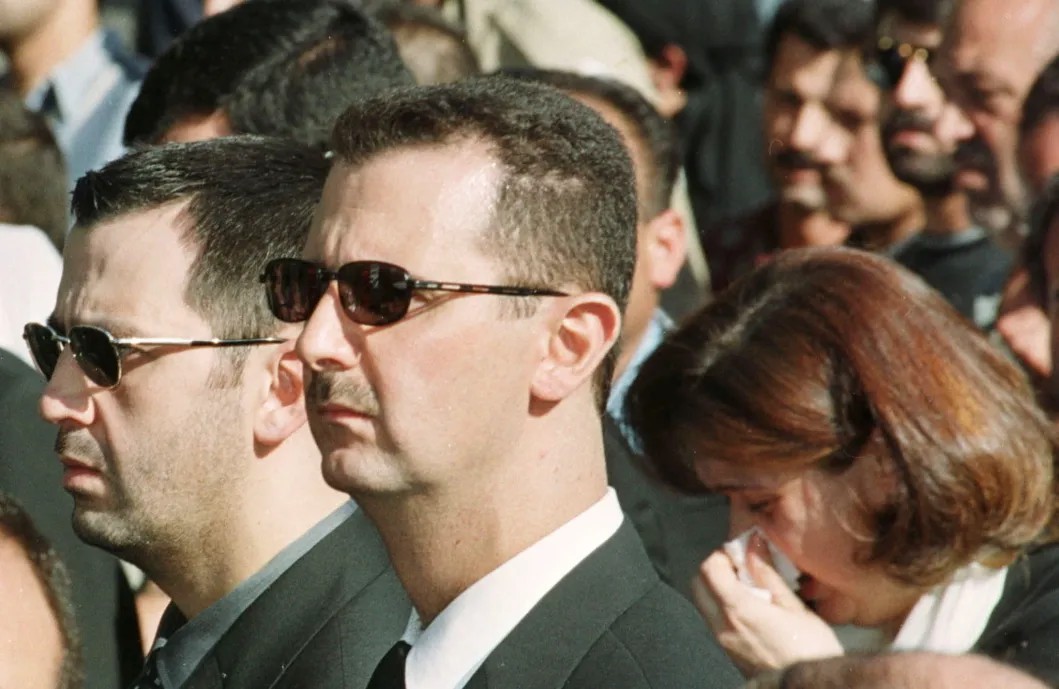
Where Russia comes in.Russian troops are now in the way of Turkish pushback in Idlib and Ankara has also objected to the active Russian airstrikes in the province in recent months. Moscow stands accused of targeting hospitals and schools – which the Kremlin vehemently denies (despite overwhelming evidence all over social networks and in the international press). And the recent escalation is threatening the complete collapse of Putin’s alliance with Turkey’s President Erdogan over Syria. For the Kremlin, this also shows that Putin’s enormous influence on Syria’s President Bashar al-Assad is not enough to stabilize Idlib either.
Russia’s position in the Middle East under threat. “Here, Russia and Turkey are facing another notable player in the Syrian field, and that’s Iran,” El Hayek writes. “Iran wants to strengthen its influence in Syria and is pushing Russia out of Idlib.” In his opinion, given the current situation the stakes for Russia have never been higher: “[Russia’s] whole image as the strongest player in the middle eastern region is under threat,” El Hayek says. “And that’s even if you don’t talk about human losses.”
Read Wadih El Hayek’s special report on the situation in Idlib here.
Russia Battling Viral Outbreaks, Explained
While Russia’s two confirmed coronavirus patients are now officially cured, the country is continuing to mobilize against the spread of the disease.
Meeting secretive “antivirus” troops. This week we’ve decided to profile Russia’s special task force battling the coronavirus, which is linked to the country’s “human well-being” watchdog Rospotrebnadzor. This is the same team that Russia deployed to tackle the Ebola outbreak in Africa in 2014. However, there’s growing concern about their classified work — and confirming even the most basic information, like who’s heading their anti-coronavirus campaign, has been a challenge for us.
“Shut up first” – act later. The fact that these disease control task forces refuse to talk to the press is worrying, says science journalist Irina Yakutenko. “We do not know what they are analyzing, there is no official information. This is also a violation of the [World Health Organization’s] rules. They’re supposed to tell society everything, but they aren’t telling us what’s actually happening,” she underscores. Instead, Russian officials are choosing to “shut up first and take urgent action later” – something Yakutenko says is customary.

New law targets sick migrants.Earlier this month, Prime Minister Mikhail Mishustin signed an action plan to fight coronavirus – including a clause allowing for the deportation of sick foreign citizens. In addition to the coronavirus, the list includes 15 other infections, such as tuberculosis and HIV – and Russian officials didn’t wait long to use it.
Deporting HIV patients.Just last week, two newly diagnosed HIV patients came under threat of deportation, despite the fact that they had been living in Russia for over 20 years. The two women are twin sisters, whose parents brought them to Russia from Kazakhstan as children. While attempting to renew their residency permits, they underwent routine medical checks and were diagnosed with HIV. By law, they now have 15 days to leave the country.
Read Novaya Gazeta’s special report on how secretive Russian health agencies are fighting the coronavirus here.
Other Top-Stories Russia Has Been Reading
- Among this week’s top articles was the story of Nikita Rukosuev – a father in the Siberian city of Krasnoyarsk who held a solo-picket following the death of his son. Two-year-old Zakhar died in intensive care because the local administration’s budget was unable to cover the cost of gene therapy medication, leaving doctors unable to treat him for spinal muscular atrophy. While this rare disease is treatable in very young children, a single injection costs about $2.5 million – a price tag ordinary Russian families simply can’t afford. What’s more, spinal muscular atrophy is not included in the Ministry of Health’s list of illnesses it covers with free treatment for children, despite the fact that it affects about 3,000 patients in Russia – 500 of whom are children under the age of two. Novaya Gazeta has been raising money to help other families whose children suffer from this disease and has launched a petition demanding that the new Constitution guarantee the right of children with rare diseases to receive assistance purchasing medicines.
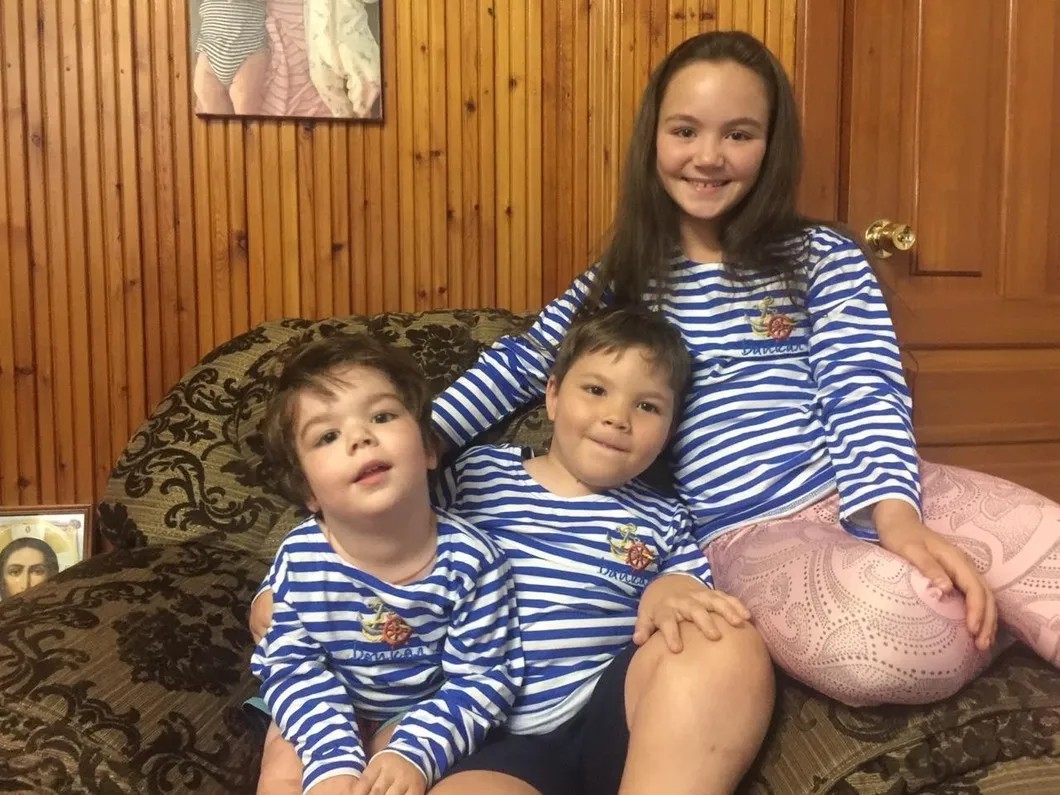
- Two weeks after our correspondent Elena Milashina was attacked in Grozny, the capital of Russia’s southern region Chechnya, her work email has been flooded with death threats. Their general message? Don’t touch Kadyrov and don’t come to Chechnya – otherwise, we’ll bury you. While the police are still looking for the culprits, we’ve identified at least one person involved. The sender is Anna Ikonnikova – an ardent supporter of the head of the Chechen Republic, Ramzan Kadyrov. She calls herself “Kadyrov’s killer” and is known for sending similar threats to human rights defenders and public officials.
Thanks for reading! To keep up with Novaya Gazeta’s reporting throughout the week, you can follow us on Facebook, Twitter, Instagram and Telegram. Our video content is available on Youtube and don’t forget to visit our website for the latest stories in Russian. Until next time!
— The Novaya Gazeta Newsletter Team
Поддержите
нашу работу!
Нажимая кнопку «Стать соучастником»,
я принимаю условия и подтверждаю свое гражданство РФ
Если у вас есть вопросы, пишите [email protected] или звоните:
+7 (929) 612-03-68